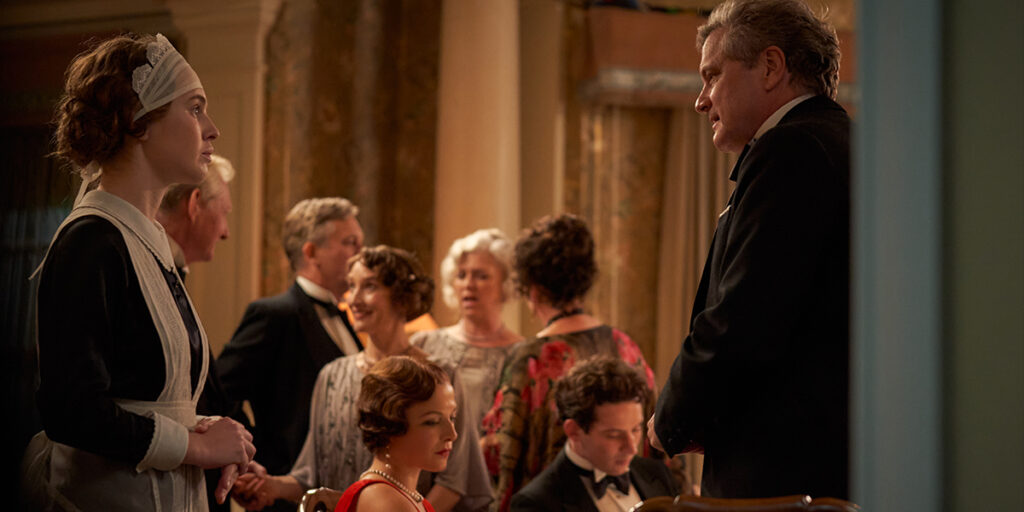Jane (Odessa Young) is working as a maid for the Nivens (Olivia Colman and Colin Firth), an aging county couple who lost their sons during the First World War. Without the family knowing, Jane is having an affair with the remaining son of the Nivens, Paul (Josh O’Connor). Paul is the only one of his peers to return home from the front. This has left him with a sense of guilt and duty to his family; they expect him to pursue a career as a lawyer and marry a woman of the same stature and power as him.
With the first couple of scenes, you already know the movie’s mechanism. Its first half mainly deals with the aspect of love, lust, and romance. The latter is about grief, sorrow, and losing the person you cherish most. So, what does it want to say about all those themes? That’s the real question; you end the film not knowing the answer. There are moments of clarity where you think it might go into familiar territory, which isn’t a bad thing if it had better structure. Or maybe even onto new grounds regarding lust in time of separation because of abundance; albeit it never does get that moment of rich delicacy that fulfills the gaps in its narrative.
Why doesn’t it get there? Because it is so enticed into thinking it is saying something clever or poignant, even though it isn’t. There are several unnecessary sex scenes that ‘spice up’ the relationship and ‘build’ a deeper connection to them; they have no meaning at all. I get one or two, but there is an occasion where there are three in a row. As for the main character, she is oh-so sad after multiple tragedies spear her heart, leading her to write a book. The book is then forged and fed upon scripture from the disasters she has passed through, as we see her writing critical statements or words as the film passes.
The main problem is that we don’t get much reason to care for the people we are meant to feel sorry for. So, we spend time with them, and they deliver these ‘deep’ Shakespearean sentences that feel so unrealistic; it is bafflingly risible dialogue that takes the seriousness off the scenes. The scenes with the best script are without the main characters or the ones without communication because the performances lift the poor writing.

Like most period pieces, they are good to look at, and most of their shots look like paintings. Cinematographer Jamie D. Ramsay does a great job purifying even the simplest of scenes and cleansing them with such beauty. There are also great costumes, production design, set decoration, and lighting. These aspects are the ones that help capture the atmosphere when the script doesn’t do so. For example, the image of a family sitting at a table but only one person is missing says more than what the screenplay tries to showcase on the topic of lust and romance.
And when it comes to the performances, “Mothering Sunday” does deliver. Its outstanding cast shines and manages to fend off the poor lines with great acting. Odessa Young provides a best career performance; switching from graceful to holding her head high to reflect the pain. British darlings Colin Firth and Olivia Colman don’t have much to do but seeing them is delightful. Josh O’Connor does quite well, too; nevertheless, his character isn’t that likable.
In the end, “Mothering Sunday” has a couple of things to offer, but not from its narrative, structure, or script. Instead, it is a tale of two halves, the first being exciting and sensual, albeit a bit too much, and the second being hollow. It is unfortunate when great talent joins up for a project with lots of potential, and it ends up being yet another epicurean period piece. It isn’t unique, and the flashbacks were not the best choice. However, at least you get some good performance and excellent cinematography. You leave the film with something in mind; that there is a more prosaic film under the wraps of mediocre storytelling.
This review of “Mothering Sunday” is written from its screening at the 2021 Toronto International Film Festival (TIFF).


